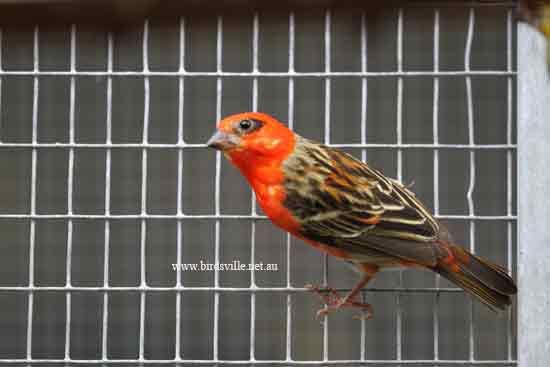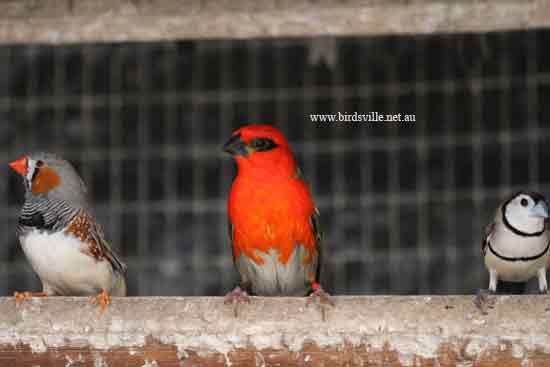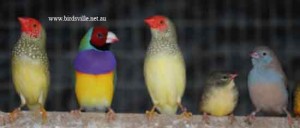Madagascar Weaver

Found in store, for more details call Birdsville 9667 2555. More information coming soon.
Foudia madagascariensis
Weight around 26 grams
Natural Distribution and Habitat
As the name suggests they are native to madagascar off the coast of south Africa, these birds are usually found in savanna and forest clearings. They can also be found in cultivated area’s.
Diet for feeding Madagascar weaver’s
Seed- Feed a good quality finch mix is essential for breeding madagascar weavers be wary of some super market brands as they contain many seeds which are not very effective in keeping and breeding weavers. aside from a decent finch seed mix madagascar weavers will also eat oats, linseed, rape seed and sunflower
Sprouted seed- Especially important for weavers feed regularly.
Millet sprays- A good treat for weavers
Greens- seeding grasses, dandelion, chickweed, endive, flowering heads of milk thistle
Vitamin supplement- Add vitamins via the water supply regularly
Live food- such as meal worms, fly pupae with some added wombaroo insectivore mix is important for these insectivorous finches
Egg and biscuit- Great for Madagascar weavers for extra protein a boiled egg can be added to the formula.
Grit- supply a good quality grit with a mix of charcoal, shell, baked egg shell, crushed cuttlebone and limestone
Fresh water- always have a clean bathing area available.

Breeding Madagascar weaver’s
Breeding season begins in september and finishes in may. These birds will build their nests in thick dried bush and will not nest in your conventional finch nests. The male will construct the nest so be sure to have plenty of nesting material such as many different lengths of long grass and palm leaf strips. The hen when she has approved of the nest will lay around 4 pale blue eggs that she will incubate for 14 days while the male will guard the nest. She alone will continue to feed the young for a further 3 weeks until they begin to venture outside the nest. The young will continue to be fed by the parents for up to 4 more weeks while they learn to feed them selves. It is essential that during this breeding process that they are supplied with plenty of live food and egg and biscuit formula.
Sexing Madagascar Weaver’s
During the breeding season they are easily sexed as the male is sporting its beautiful red plumage. Outside of breeding season they are very difficult to sex as they are almost identical.



